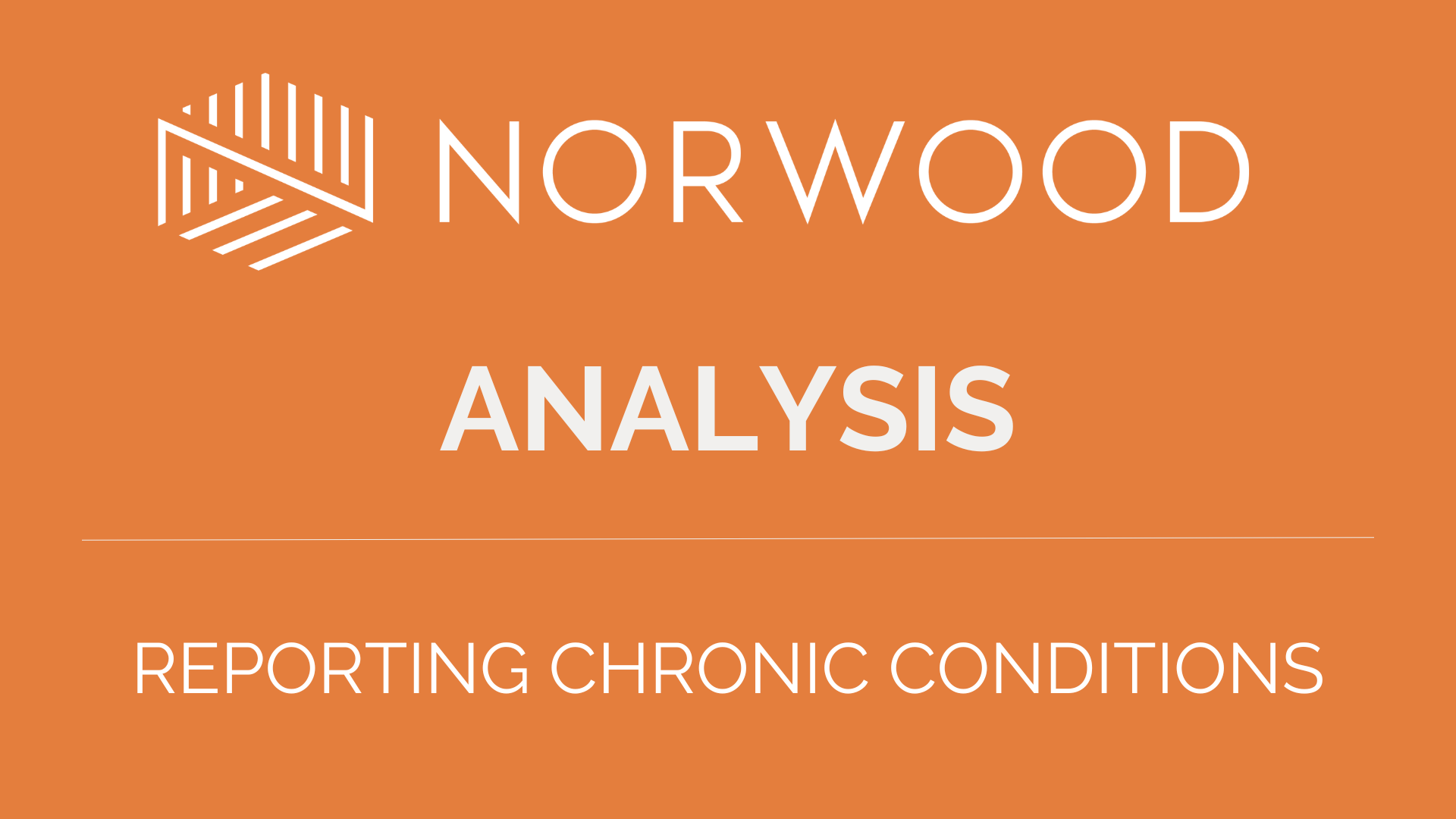Compliant Chronic Condition Reporting Requires Provider Documentation of Ongoing Care or Management

By Brian Murphy
Chronic condition reporting is more important than ever these days, but also a subject of increasing scrutiny.
When a patient comes in for an outpatient visit with a chronic condition, should we report it?
The TL;DR answer (to me at least) appears to be that it is the provider’s responsibility to document that the condition affected the care or management of the patient during the encounter. If he or she does, it can be reported.
Section IV of the ICD-10-CM Official Guidelines for Coding and Reporting (which pertain to outpatient services) states the following:
- Chronic diseases treated on an ongoing basis may be coded and reported as many times as the patient receives treatment and care for the condition(s)
- Code all documented conditions that coexist at the time of the encounter/visit and that require or affect patient care, treatment or management. Do not code conditions that were previously treated and no longer exist. However, history codes (categories Z80-Z87) may be used as secondary codes if the historical condition or family history has an impact on current care or influences treatment.
What does Coding Clinic say?
Copyright and length restrictions prohibit me from restating these in full, but your best references are:
Coding Clinic Third Quarter 2021, pp. 32-33, “Reporting additional diagnoses in outpatient setting – clarification,” which states the following:
“Coding professionals should not assign codes based solely on diagnoses noted in the history, problem list and/or a medication list. It is the provider’s responsibility to document that the chronic condition affected care and management of the patient for that encounter.”
Coding Clinic followed that up with an entry in Q2 2022, titled “Hierarchical Condition Category (HCC) Coding,” which added refinement, stating that such a condition could be reported for HCC coding purposes from another encounter in the same year, but only if it met the same requirement (i.e., the condition affected care or needed management). From that entry:
Question: Is the advice published in Coding Clinic Third Quarter 2021, pages 32-33, related to reporting additional diagnoses in the outpatient setting only if the chronic condition affected care and management of the patient for that encounter applicable to coding for hierarchical condition categories (HCC) for risk adjustment?
Answer: The Coding Clinic advice that additional diagnoses in the outpatient setting must affect care and management of the patient was related to the coding for a single specific encounter in time. Coding for risk adjustment, such as for HCCs, involves the collection of known current chronic conditions over the course of a year. While a patient’s chronic condition may not have affected care or needed management during a specific individual outpatient visit, the chronic condition would be captured for HCC coding from other visits, encounters, or hospitalizations when the chronic condition affected care or needed management.
Thanks to Jim Kennedy for providing me references on this topic.
How do you handle chronic condition reporting in your organization? Do they differ for HCC reporting vs. standard profee coding?
We Can Help
Having trouble with compliant chronic condition reporting in your organization? We’re here to help. Send us an email at consulting@norwood.com.
Additional Reference
Norwood Coding Tip, Reporting Additional Diagnoses in the Outpatient Setting: https://www.norwood.com/coding-tip-reporting-additional-diagnoses-in-the-outpatient-setting/
Related News & Insights
2026 IPPS proposed rule: Seven key takeaways for CDI, coding professionals
The FY 2026 IPPS proposed rule is out… what does it contain? With the change in administration…
Social Determinants of Health (SDOH), integral to preventive medicine and cost reduction, in jeopardy under new CMS administration
By Brian Murphy Health is far more than just biology, pathophysiology, or medical facts about a patient….


